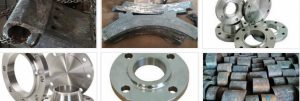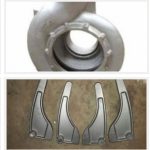How to Choose the Right Alloy Casting for Your Products?
In today’s metal casting scenario, aluminum and steel are the most powerful contenders. Hundreds of thousands of manufacturers across the globe depend on both of these metals for the production of light yet strong and corrosion-resistant metallic products and parts. There is no dearth of grades and alloys for aluminum and steel. And each of them has particular benefits and drawbacks as told by a leading alloy steel casting manufacturer. For such a comparison, we need to focus on both aluminum and steel alloys, in a general manner.
• Weight – Aluminum is less dense than steel and thus most of the aluminum alloys. The metal is almost 3 times less dense than that of steel. The lower density of the former metal is responsible for its weight advantages. Aluminum products can enhance their stiffness and strength by enhancing the material in important areas while keeping the overall weight low. So, in this respect, aluminum is more accepted than steel and thus aluminum alloys are more preferred than steel alloys.
• Strength – Steel is undoubtedly stronger than aluminum. However, there are aluminum alloys that are even stronger than some kinds of steel alloys. In the case of weight-bearing structural units and applications, sufficient strength for operation is needed. And steel is often more preferred than aluminum for such purposes. Aluminum offers weight benefits. However, it should be diligently engineered to meet needed strength requirements. And so, in terms of strength, steel and thus the steel alloys are more accepted than aluminum and its alloys.

• Cost – Costs differ largely between these two alloys. Both domestic and international markets always fluctuate in terms of their prices. Steel is solely based on iron ore. On the other hand, aluminum is produced from bauxite ore. Both of them are quite common and easily available. But iron is less costly to its source. Both aluminum and steel can be recycled. The process of recycling is less expensive than the process of production than raw material.
Usually, aluminum is less expensive than that of stainless steel as reported by a reputable alloy steel casting manufacturer. However, the former is more expensive than that of carbon steel. The costs of certain alloys depend on their composition, policies regarding their importation and the process of material extraction. Therefore, it would be a tie between aluminum and steel, in terms of their costs.
• Corrosion resistance – Typically aluminum is more corrosion resistant than steel. The former can withstand long periods in wet and outdoor environments. alternatively, carbon steel gets easily corroded. They have to be sealed or painted to remain in a workable condition. On the contrary, stainless steel is highly corrosion resistant both in comparison to aluminum and carbon steel. Though there is a myth that aluminum doesn’t corrode, this is not true. Aluminum doesn’t rust, unlike iron. However, when it is placed in any basic or acidic ambiance, they can corrode even faster than many alloys. In terms of corrosion resistance property, both of them have the same weightage.
If you compare steel alloy and aluminum alloy in terms of weight, strength, cost and corrosion resistance, sometimes, the former is more advantageous than the latter and vice versa. They are chosen accordingly, as per their property and other positive as well as negative traits.




